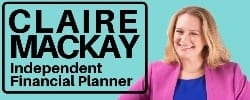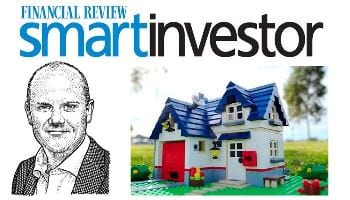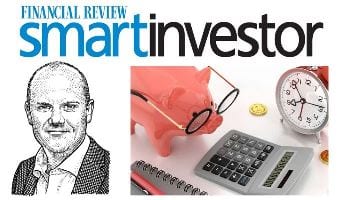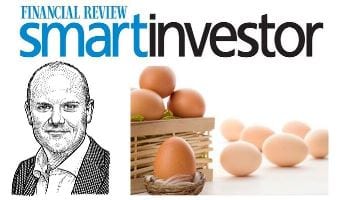Being debt free is a goal few manage to achieve. Or at least quickly.
(Note: This article by Claire was first published on Business Insider)
Claire Mackay, a financial planner at Quantum Financial in Sydney, says you should think of debt as you would cholesterol. Just as there is good cholesterol and bad cholesterol, there is good debt and bad debt.
She says:
“It’s incredibly important that you can distinguish between the two and that you manage both wisely. We know it’s healthy to monitor our cholesterol levels, so too we should monitor our debt levels.
Good debt builds your assets. We classify investment loans, business loans, equipment loans, mortgages and education loans as good debt. Some good debt may also be tax deductible.
Bad debt finances things that don’t add to your wealth or will typically lose value over time. In this category we’d classify credit card debt, store card debt, car loans and personal loans.
Your overriding debt goal should be to stay current on all debt on a monthly basis. Ideally you should be paying it off ASAP with accelerated payments.”
Here is Claire Mackay’s take on the types of debt start with the most urgent first:
1. Credit card
Credit card debt can be the most crippling of all bad debt as it’s subject to high interest and it’s not tax deductible. Pay this off first.
If you know exactly how and when you’re going to repay your credit cards in the same month then that’s great. If you don’t know how you’re going to pay your maxed out credit cards off, then you need to sort this serious problem pronto.
Don’t be fearful and put your head in the sand – consolidate to one credit card only, use it responsibly and plan to pay off any outstanding amount.
2. Store purchase loans
Have you ever been tempted to buy that brand new big, shiny flat-screen TV using the seemingly generous credit options on offer? If you have outstanding store loans then they rank on a par with credit card debt on the bad debt scale.
3. Personal loans
Unsecured personal loans to fund one-off indulgent expenses such as holidays or luxury items are another type of bad debt. If you receive this loan from a friend or a family member, your relationship is far more important than any personal benefit you will derive from the loan. Pay this debt back immediately.
4. Tax debt
If you owe money to the ATO this is a bad thing. However, if you find yourself in this situation, don’t bury your head in the sand and hope it will go away because it won’t. Ever. Never ever.
Interest will accrue daily and fines will be applied to your late payment. Then interest will be applied to your penalties. Then interest on your interest. You get the picture.
Instead, open an honest dialog with the ATO, explain your situation and ask what repayment options you have available to you. Develop a strong plan of action and pay this debt off as soon as you can according to the repayment plan you agree with the ATO.
5. Car loans
From the minute you drive your brand new car out of the car dealership, the car loses value while the debt that finances grows as interest accrues. Hence, a car loan can be considered bad debt. However, if you have structured your car loan via a novated lease type arrangement, there can be tax benefits with a car loan.
6. Business/Equipment loan
If you are an entrepreneurial business owner or professional, you may well use debt to finance assets in your business or practice. This can be a great way of growing your business and building your future personal wealth. Ensure you have a well-structured capital and interest repayment plan. If you can accelerate repayments this will reduce your outgoings on interest and will provide you with increased debt capacity to help finance future business growth.
7. Investment loan
Investors with a higher appetite for risk may consider investment loans to finance investment in growth assets such as property or shares. Like a business loan, this can be strategic way of building your future wealth but be mindful that you are taking on more risk and that if the property or share markets go down any debt you have used to finance the investment will exacerbate your losses.
8. Home mortgage
Typically the largest debt Australian households hold is the mortgage which underpins your family’s ongoing lifestyle. “The great Australian dream” is the commonly held belief that home-ownership leads to a better life and is an expression of success and security.
While interest payments on your mortgage are not tax deductible, a mortgage of a manageable size is generally considered good debt. To check the manageability of your mortgage, add 2% to 3% to your interest repayments and ensure you can still manage to pay both the interest and capital repayments.
9. Student loans
Student loans are good debt as they help you improve your financial future. Investing in education means you will earn more in the future.
Any outstanding student loan is indexed each year in line with inflation (CPI) and compulsory repayments are automatically made through the income tax system. You can also make voluntary repayments at any time to reduce the balance of your debt.
Be alert and take control
Be aware that Australian household debt has tripled over the past 25 years and the Reserve Bank has sounded repeated warnings on the levels of household debt. If you carry some form of debt then ensure you are in control by taking steps to manage it and to quickly pay it off.
This article was first published on Business Insider.
__________________________

Claire Mackay LLB LLM BCom CA CFP CTA
I am a financial planner, SMSF expert and company director. I thrive on providing independent, expert financial advice to my wonderful clients. I was recognised as Financial Planner of the Year 2015 and Investment Adviser of the Year 2014.
To contact me, speak to my team on 02 8084 0453. Please feel free to connect with me on LinkedIn or on Twitter. You can also visit the Quantum Financial website.




